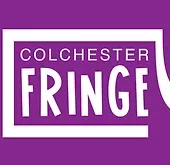FringeReview UK 2025
Troilus and Cressida
Shakespeare’s Globe

Genre: Classical and Shakespeare, Dark Comedy, Drama, Live Music, Political, Theatre, Tragedy
Venue: Shakespeare’s Globe
Festival: FringeReview UK
Low Down
The most infrequently-revived of all Shakespeare’s major plays, this absorbing, intermittently brilliant production of Troilus and Cressida is directed by Owen Horsley till October 26, marking Horsley’s Globe debut. See it before it goes.
This play refuses to dwindle into a classic. A must-see.
Review
The most infrequently-revived of all Shakespeare’s major plays, this absorbing, intermittently brilliant production of Troilus and Cressida is directed by Owen Horsley till October 26, marking Horsley’s Globe debut. See it before it goes.
Horsley might feel free to create several brave new worlds at once. Sometimes termed Shakespeare’s ‘newest’ play, Troilus and Cressida dating from 1601-02 wasn’t properly revived till after World War One: absurd chivalries and realpolitik startle with modernity. And do again in 2025. Indeed the play might grow out of that moment in the recent Hamlet, where a captain curses a patch of untillable ground where twenty thousand men will die for nothing. Often cut, that’s present in both Hamlets now playing in Chichester and yards from the Globe, at the National. There’s synchronous thinking. Not for nothing does the late A. D. Nuttall (reprinted in the programme) playfully suggest Hamlet as the author.
There’s challenges with an outdoor Troilus and Cressida – with dense language trumping character. Horsley’s two-hour-forty-five production features occasional muffled speeches and chopped rhythms. The cast, consistently strong, don’t get a consistent chance to shine. Despite the title there’s no leading protagonists with either tragic release (literally eternally deferred like some modish trope) nor comedic ending. It’s a major reason we don’t see it. It never settles, it’s Shakespeare’s quicksilver. First termed a ‘history’ in quarto (1609) it was labelled ‘tragedy’ in the Folio; but not listed under any genre.
Horsley’s 14-strong ensemble entertains in numbers choreographed by Daniel Hay-Gordon. Because of that though, some bitterness evaporates. Horsley uses tricks to entice it back, going further than Shakespeare. Emily Carne’s artwork imposes a modest brand, careful not to impose. Ryan Dawson Laight’s Vegas-studded set with its giant Pythonesque foot (an inverted Ozymandias crushing everything from the clouds) and gorgeous golden armour worn by returning Trojans stamps a quasi-mythical world, crossed with a bit of modern dress. Happily with no guns or khaki in sight Horsley honours trial by arms; with close-up brutal clashes here modernity would mar with a gunshot. Though the chance to use the balcony for Cressida and Pandarus to watch returning knights – straight from medieval pageantry – is passed up.
Storytellers take centre-stage, both enormous fun, making the parts their own. As Thersites Lucy McCormack rightly appropriates the armoured Prologue too. And has an ace up her robes since there’s a plan to her doubling as rock goddess Helen – singing the catchy “Love, love, nothing but love” (with audience participation) to lyrics by composer Eamonn O’Dwyer, with his brass-punchy score. McCormack gyrates wildly till she collapses sobbing. But when as Thersites McCormack is able to parody Helen in Helen’s skimpy garb and pull off the wig, it’s a brilliant performative riff on cynicism. And of course places Helen as a Thersites who uses sex. Which reeks off this production. As elsewhere, not everything is ideally clear vocally, in a play hinging (like Love’s Labour’s Lost) on language. As characterisation though it hits the back of the throat. Which is why denying Thersites the great coward scene is perverse. Cuts are necessary, but McCormack’s riveting portrayal is tailor-made for the moment where she claims being a bastard means a threatening Trojan would be shamed to fight her.
Samantha Spiro’s orange-wigged Pandarus, a bustling madam is suitably uproarious. Her speeches are a little cut now to sweep off Winchester geese (apparently present at the run’s start); references people mightn’t get. This Pandarus though is humane, appalled at how the war severs her distant cousins. Nevertheless at the end she cackles like other Pandaruses over the years (notably the BBC’s 1981 production with Charles Gray). Spiro’s cousin to Juliet’s Nurse. There’s good humoured bawding till Spiro’s final speech spills out.
Spiro initially overtalks Charlotte O’Leary’s Cressida and Troilus’ tongue-tied, later eloquent Kasper Hilton-Hille. O’Leary though is clear-voiced with a slinky Welsh tang. Her “Men prize the thing ungained more than it is” is sassy and a bit brittle. Yet her Cressida is frank and vulnerable when she gives herself to love. The whole wooing scene with its play on “as true as Troilus” and “as false as Cressid” is a bit tedious (and uncut), playing to the early 17th century gallery. This Cressida’s anxiety to return to bed, partly to shield Troilus from being discovered renders her sympathetic. O’Leary doesn’t as some do, turn with tragic inward fury. With Diomedes’ contempt slinging her as cattle over his shoulder, and gang-assault in the Greek camp, there’s little choice. It is though an easier transition to “false” Cressida.
But O’Leary’s trophy-victim is deprived of her own epitaph: “Farewell Troilus. One eye yet looks on thee” is cut. Just as Hilton-Hille’s ardent Troilus, humiliated by Diomedes and differently by Ulysses as he peers astonished at Cressida’s collapse, is deprived of his final “Hope of revenge shall heal our inward woe.” Though empty it gives him a clarion tilt at resolution. When a drama sports so few, it’s best to take those offered.
Jodie McPhee enjoys megaphone moments as Cassandra, but mostly as a bespectacled Ulysses, like an anarchist professor. He first ‘degree’ speech to fellow Greek leaders is an odd bluster: McPhee tries to reconcile the tricky acoustic with volubility, rising and falling on odd loud emphases, and not clear. Some serpentine moments go for nothing. Paradoxically when McPhee zones in on Achilles with the great “Time hath, my lord, a wallet at his back,/Wherein he puts alms for oblivion” she is all clarity and persuasion; it carries. As does her interaction with Troilus, peeping from an island amongst groundlings. A later moment, an action rewritten by Horsley, is questionable. Ulysses might be a Machiavel, she’s no psychopath.
Paradoxically there’s moments enhancing traditional character. Oliver Alvin-Wilson’s Hector is impressive. Also featuring as a decrepit Calchas, father of Cressida in a wheelchair, his voicing is cracked or sovereign. Hector mostly acts nobly, but his noble speech twists on “to keep Helen still” citing dignity. Here Alvin-Wilson’s distaste, turning away before returning to deliver this volte-face, is palpable. His exchanges with Achilles set hm off gleaming, but his guileless nature is a symptom of the Trojans’ absurd chivalry. Shakespeare takes his cue from the Roman reading of noble Trojans (from whom they traced legendary descent) versus tricksy Greeks. Hector charging venously after glorious armour only to find it putrid, is his undoing.
Greek leaders are shrunk, Ulysses the dark prince. Matthew Spencer’s Helen-fawning Paris is minimal, though as golf-wielding Menelaus he’s recognisable as a tech bro who looks to big bro Agamemnon (Jonathan Livingstone) who’s impressively-voiced, for authority. Ajax (Ibraheem Toure) isn’t as blockish as some Ajaxes. He baffles rather than boors though does both, and isn’t entirely ignoble. David Caves’ shades-and-bleached hair Achilles seems beached, sulking, capable of outrage to his own side, treachery to adversaries. He’s deprived here of one kill; thus now Achilles slays no-one. His final assault on Hector is famously mobster-ish: “Strike fellows, strike, this is the man I seek” suitably choreographed as his Myrmidons comply.
Tadeo Martinez’ Patroclus (also foppish Trojan official Alexander) uncoils from pillars to kiss Achilles, though donning Achilles’ armour seems more a whim: he’s given small scope to stamp a character. Diomedes (Conor Glean, also aged Antenor) emerges as a misogynistic hired thug, all contempt, intent on Cressida as sex-chattel. It’s completed by hard-working ensemble duo Tilly Botsford and Finn O’Riordain.
There might never be a more entertaining Troilus and Cressida, the nearest it gets to a crowd-pleaser. Do we want that? A teeming production of a drama already so slippery inevitably throws up discords and inventions that fizzle. What seems alien, even flawed, to a degree is Shakespeare’s doing. Though not his fault. Heterogenous, ideas whirligigged like multi-coloured spokes, this play refuses to dwindle into a classic. While a few productions have conjured just that, opening up depths, this one is faithful in its fashion by flaying every jar and contradiction in its satire. A must-see.
Musicians: Composer and Additional Lyrics Eamonn O’Dwyer, MD/T Tuba /Piano/Double Bass/Bass Trombone Richie Hart, Woodwind Rianna Henriques, Accordion Aine McLoughlin, Percussion Magnus Mehta, Trumpet Victoria Rule
Associate Designer Christopher Eynde, Associate Director Robert Zuric
Movement Director Daniel Hay-Gordon, Fight & Intimacy Directors Rachel Bown-Williams and Ruth Cooper-Brown for Rc-Annie
Scenic Artist Emily Carne, Costume Supervisor Laura Rushton, Voice and Text Consultant Emma Woodvine.
Stage Manager Rob Walker, DSM Jen Davey, ASM Rachel Middlemore, Stage Management Placement Lydia Tricks
Globe Associate – Movement Glynn MacDonald, Head of Voice Tess Dignan, Head of Production Wills, Head of Stage Bryan Paterson, Head of Wigs, Hair and Make-up Gilly Church, Head of Wardrobe Emma Lucy-Hughes, Head of Company Management Marion Marrs, Head of Props Emma Hughes, Casting Becky Paris CDG. Producer Tamara Moore.




























